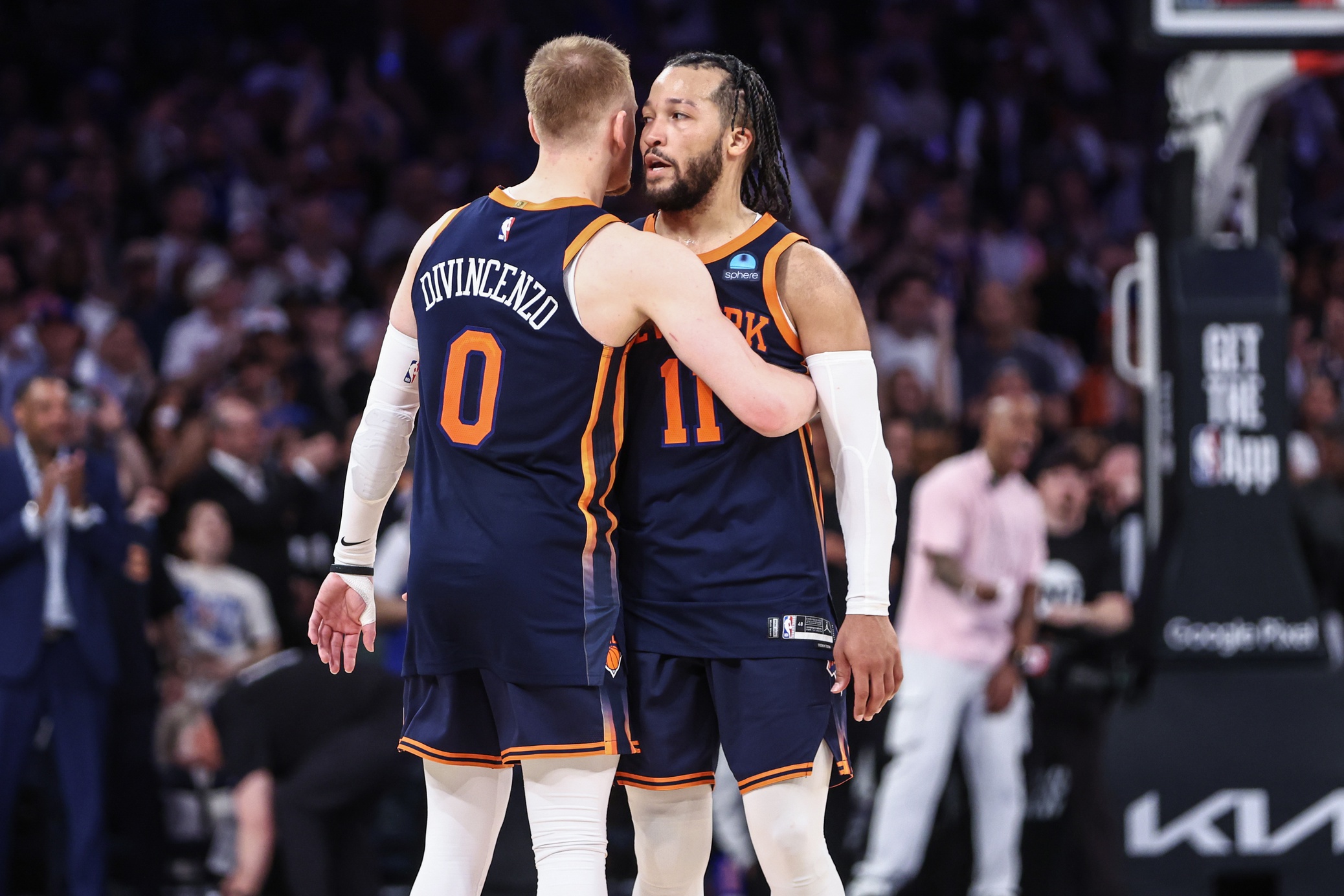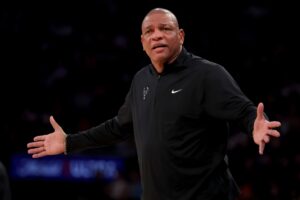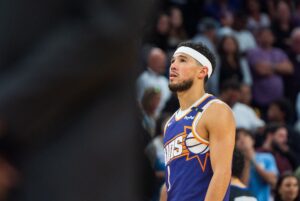For a team that had Jalen Brunson, Donte DiVincenzo, Josh Hart, and Miles McBride, adding Mikal Bridges seemed like the final backcourt move they made. After all, none of those guys have ever missed a lot of time with injury, and they just took Indiana to Game 7 without half their payroll. Since the Bridges trade, the Knicks have drafted Tyler Kolek and Kevin McCullar Jr. (two-way). They signed Cam Payne, and now Landry Shamet (Exhibit 9 contract).
For a team that lacked frontcourt depth, they loaded up at the position they were deepest on. (Hart and DiVincenzo can play forward, but they’re primarily listed as guards. Bridges is listed as a guard/forward. So, why have the Knicks loaded up?
Backcourt Depth Gives Knicks Various In-Season Opportunities
Knicks Have Room to Play Around
Despite dealing with a bevy of injuries, the Knicks had an extraordinarily healthy backcourt up until the Eastern Conference Semifinals. DiVincenzo, Hart, and Brunson combined to play 239 out of 246 games last season. They played 7,793 minutes, averaging 95 minutes over 82 games.
This load came to light in the waning moments of the Knicks season, when they lost Brunson and Hart to injury. Brunson had surgery to repair his broken left hand this offseason, while Hart suffered an abdominal strain in Game 6 against the Pacers. Their depth this season helps Thibodeau rest his guys more and give them appropriate time off. They no longer need to average 40 mins a game for 30+ games because they have solid bench players who can fill their roles. Brunson and Hart now have time to heal from their injuries. They can take time off if it flares up.
Furthermore, this depth is also a safety hatch in case the Knicks suffer injuries again. The team’s lack of depth was exposed last season after half of its rotation was injured before the season finished. Now, even in a scenario like that, the Knicks have their share of capable players who can fill gaps.
Trade Bait
The other reason for having so many guards is that it gives the Knicks cap flexibility later in the season. Payne and Shamet are both on one-year deals (Shamet non-guaranteed). Knicks bigs Precious Achiuwa, Marcus Morris (Exhibit 9 contract), and Jericho Sims are also in the same boat. The Knicks have around $18 million in one-year deals, and it allows them to make an in-season trade to fix their lack of frontcourt depth.
Any tanking team or a team looking to shed of some payroll become attractive markets for the Knicks to explore. $18 million gets you a good center in this league, and the Knicks can upgrade their backup/starting center. Centers in the $18-20 million margin are Isaiah Stewart, Steven Adams, and Jakob Poeltl. Additionally, the Knicks could also upgrade their forwards using these salaries.
The Last Word on Knicks Bench Depth
Leon Rose’s penchant for savvy moves has ingrained itself in the Knicks fanbase. In the eyes of Knicks fans, he can do no wrong. Adding so much depth in the wrong area seems like a misstep as of now, but Rose’s in-season additions and out-of-the-blue trades have taught us to expect the unexpected. A move like this would have been criticized in the previous regime, especially given the injury history and offensive shortcomings of Mitchell Robinson, but Rose will try to pull off something that no one will see coming.






